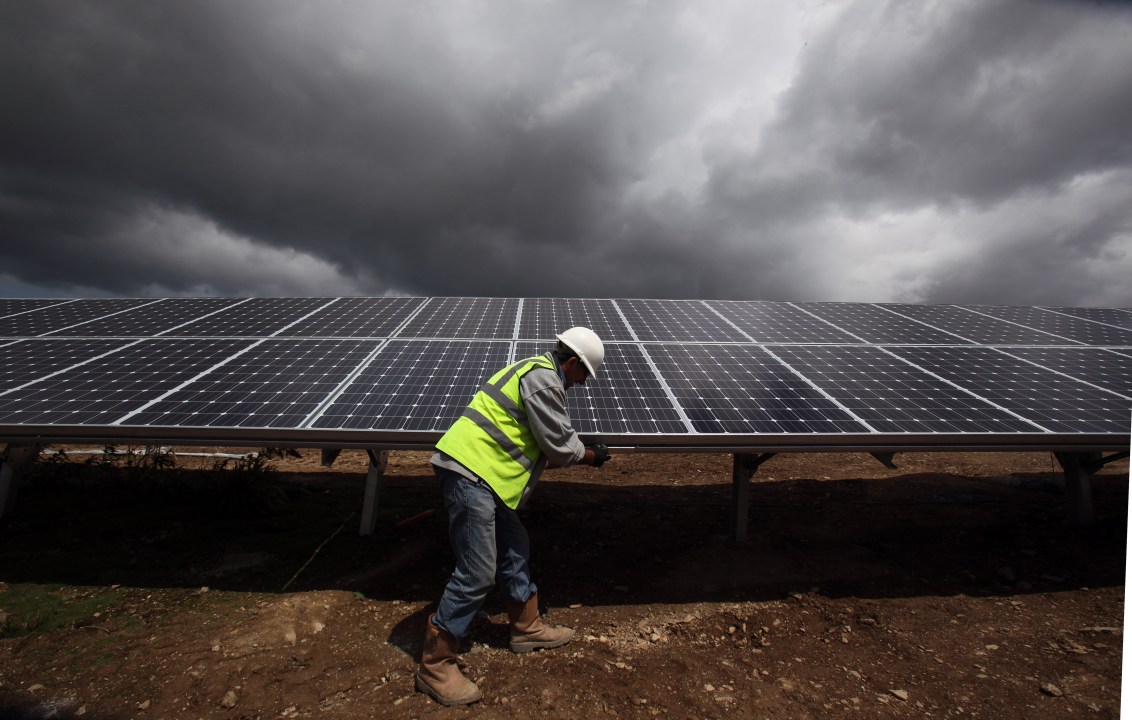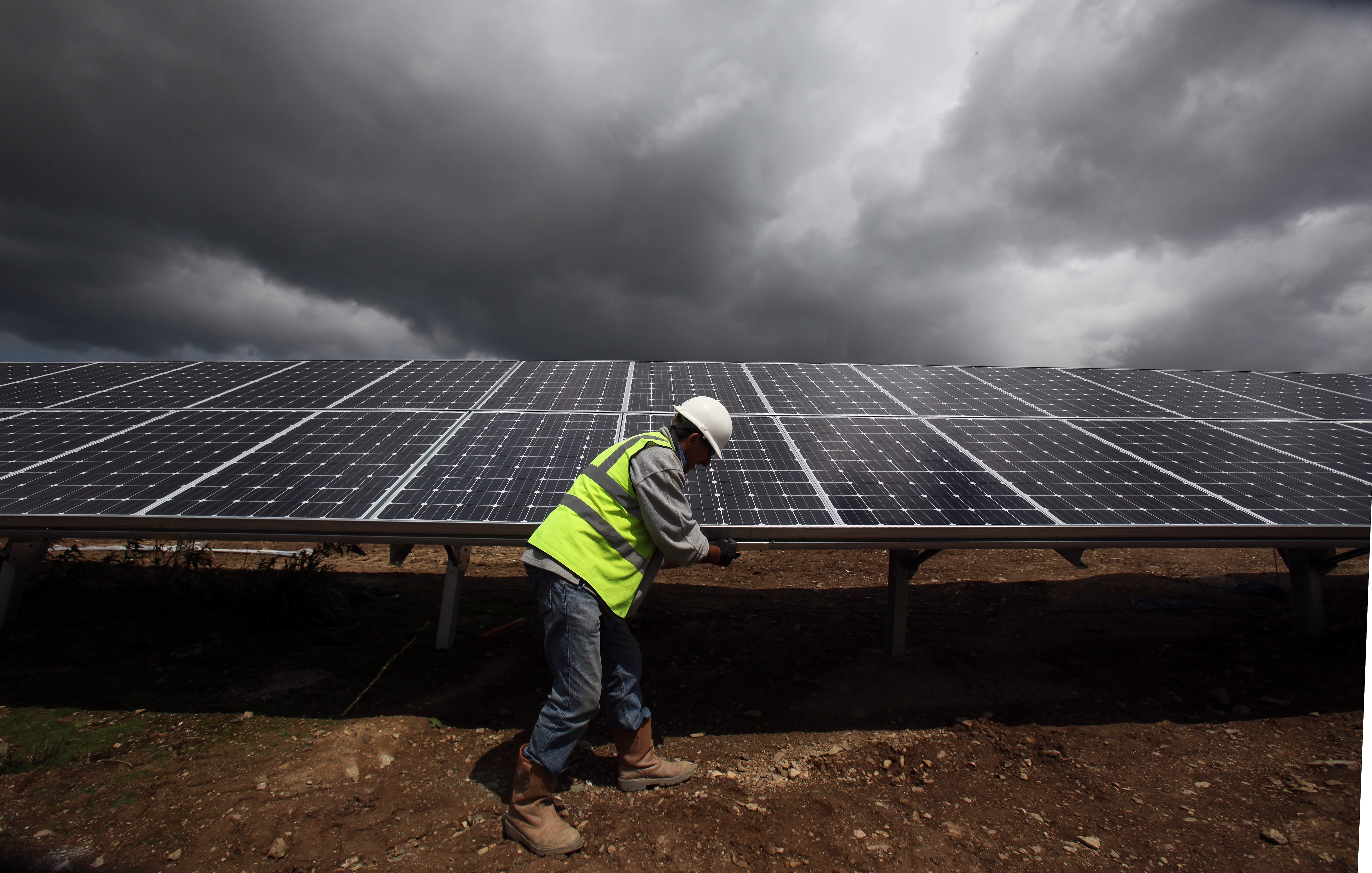Are you someone who is delighted by the government’s eye-wateringly expensive commitment to deliver ‘net zero’ by 2035, or are you a dissenter on the grounds that its plans do not go far, or fast, enough?
According to the BBC and many other media organisations, you must surely belong to one of those two groups.
Somehow the widely held viewpoint to which I subscribe – that the weight of evidence suggests man-made climate change is a big problem but we should still scrutinise climate policies on grounds of proportionality, value for money and how they measure up against less idealistic alternatives – has been squeezed out.
Tuesday morning’s news bulletins on the Today programme provided a case study of how the debate is being framed. The top story concerned the government’s new net zero announcements, including a £450 million plan to subsidise folk getting rid of gas boilers and replacing them with heat pumps. The government, we were told, was aiming to end the sale of new gas boilers in 14 years.
On no mainstream news bulletin did I hear anyone offering any perspective based on efficacy or value for money of the policies
An extraordinarily radical approach, one might think. But the only alternative view to the government’s position was that this was insufficient. ‘Some green groups have warned the total funding is not enough and that too few homes will benefit,’ listeners were told.
The BBC’s ‘Environment Analyst’, meanwhile, told listeners that while green groups applauded the phasing out of gas boilers, they had calculated that the government’s budget was ‘£10 billion short over three years.’ Labour’s Pat McFadden said the world had been waiting for Britain to take a lead in advance of COP26 and the government’s announcement ‘failed that test of leadership’.
Questions directed at Anne-Marie Trevelyan, the international trade secretary put up to defend the policy, included: ‘Why aren’t you going further?’, ‘If we’re leading it [the world] why aren’t we saying today that we will ban new gas boilers?’ and ‘Can you say today that we will in the year 2030 have achieved emissions being cut by at least 68 per cent compared to 1990 levels?’
Later that day in the Commons the shadow energy secretary Ed Miliband took the same line. ‘The plan falls short on delivery, and while there is modest short-term investment, there is nothing like the commitment that we believe is required,’ he said.
Miliband then sought to delegitimise any sceptical scrutiny of the escalating cost of net zero and its potentially intrusive impact on British families by adding: ‘The Chancellor’s fingerprints are all over these documents, and not in a good way.’
On no mainstream news bulletin did I hear anyone offering any perspective based on efficacy or value for money of the policies. Given that the UK now accounts for less than 1 per cent of global carbon emissions, is there not a case for believing that spending huge sums on further reducing our contribution will make no discernible difference to climate trends? In the absence of binding pledges by the big polluters, especially China, might it not make more sense for us to concentrate on investing instead in schemes to mitigate the harmful impacts of global warming, such as improved flood defences?
Why is the UK government apparently swallowing the idea that because Britain gave humanity the gift of the industrial revolution – and with it an escape route from grinding poverty – this makes us somehow culpable and under higher obligations to spend vast sums reducing future emissions than any other nation? How does this make sense when we are clearly a country that will suffer less than many others from the impact of global warming (which reminds me that I must put in another order for my favourite English sparkling wine)?
The absence of any discussion of questions such as these is not only a function of groupthink at the BBC and other London-based broadcasters. They can only get away with it because so many right-wing people remain wedded, almost as an article of faith, to the idea that man-made climate change is a total fiction. Those pitching their tents on this ideological terrain set themselves against not only David Attenborough, Greta Thunberg and the entire British royal family, but also against the 99.9 per cent of scientific studies finding that global warming is real and mainly caused by human activity.
This is not a stance which is going to cause a moment’s concern to even the most hard-line eco-zealot. The BBC and other media outlets consider themselves on very firm ground when seeking to banish it from public discourse altogether.
Perhaps a new lobby group is needed that can pose key questions about proportionality, mitigation and value for money while explicitly not offering any room to conspiracy theorists or outright deniers of man-made climate change. As of right now environmental policy is securely strapped to a one-way ratchet where any move by the government in favour of green policies is swallowed up and then derided as not being nearly sufficient.
It is possible, though not in my view likely, that for now green campaigners are right – and the size and urgency of the problem really does demand even bigger responses than the UK government has so far signed-up to. But at some point that will no longer be the case and we will find ourselves pouring taxpayers’ money down the drain and passing laws curtailing individual freedom that are not justified by a rational cost benefit analysis.
If we of a naturally sceptical disposition do not focus on framing our arguments more sensibly in future then we will only have ourselves to blame.








Comments